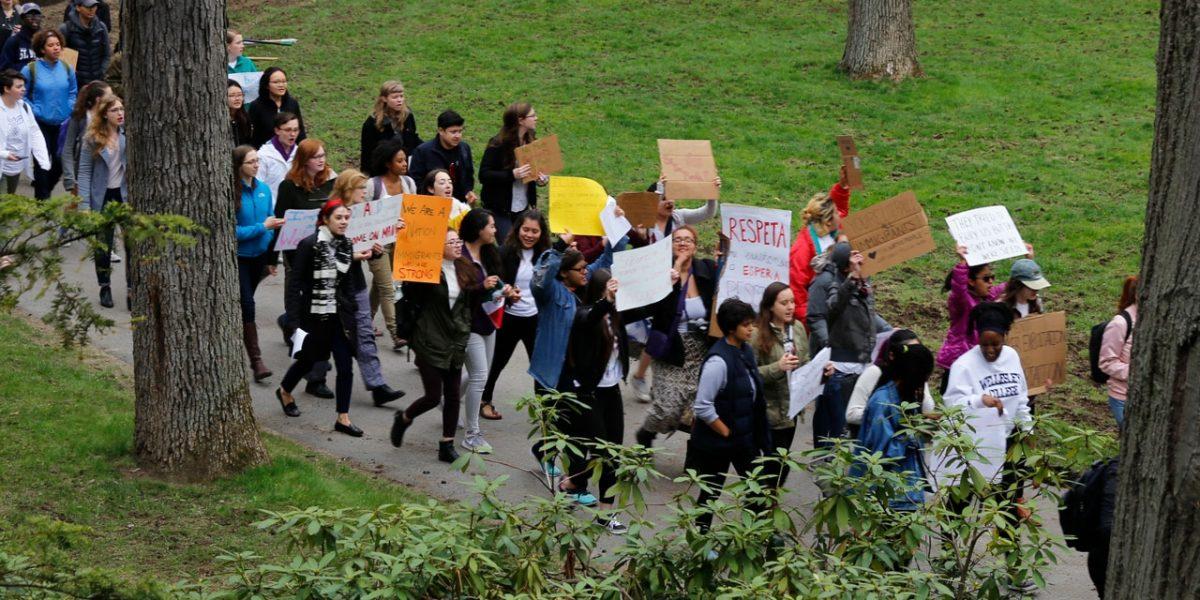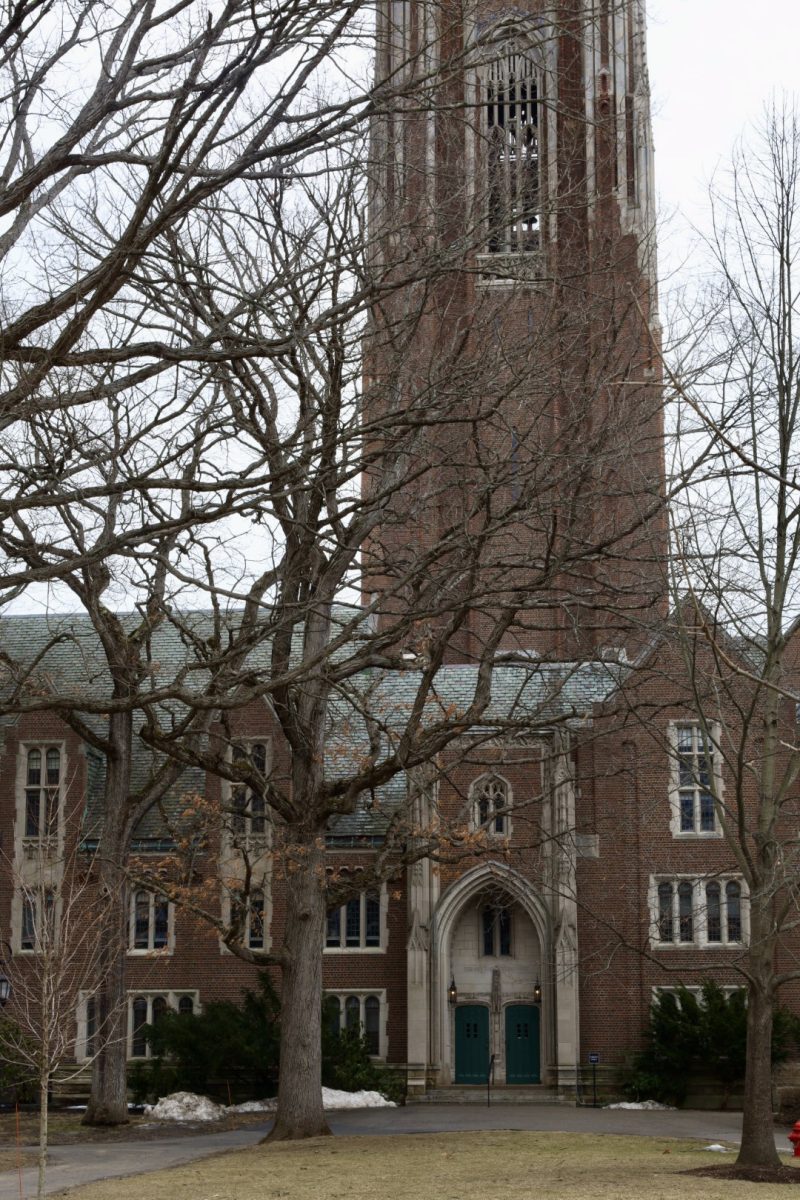On Nov. 12, the Supreme Court will hear oral arguments on the Trump administration’s attempt to rescind Deferred Action for Childhood Arrivals (DACA), an immigration policy enacted by President Barack Obama in 2012. Wellesley College has joined 165 higher education institutions in filing an amicus curiae brief opposing the decision. The 50-page brief was published on Oct. 8 by the Presidents’ Alliance on Higher Education and Immigration. It provides an insight into the positive effects DACA recipients have brought to the signatories’ campuses.
“Wellesley is an institution founded on social justice and equal opportunity. Guided by our values, we will continue to use our voice to advocate for positive change on immigration and other issues important to our community,” wrote President Paula Johnson in an email statement to the community that was sent out Tuesday morning.
The policy protects undocumented immigrants, known as “Dreamers,” who arrived in the United States as children. Approximately 800,000 individuals are protected by DACA.
In his 2016 campaign, Trump signaled that he would attempt to rescind DACA, as part of a larger trend in anti-immigrant rhetoric from his campaign and subsequent administration. He claimed that the original program was illegal, but federal courts successfully blocked the administration from ending DACA.
The nation’s highest court, however, is not considering the constitutionality of the program itself. Instead, the nine justices are adjudicating the Department of Homeland Security’s decision to wind down DACA, which is a completely procedural question.
The creation of DACA complicates the SCOTUS case. In 2012, Obama issued a presidential memorandum, an executive action that many see as an expansion of the president’s powers. When DACA was considered in front of a federal court in Texas, Federal District Judge Andrew Hanen ruled DACA “likely unlawful” for this reason. Hanen wrote, “If the nation truly wants a DACA program, it is up to Congress to say so.”
“DACA was likely not challenged originally because of where we were as a country in 2012. The country has changed since then. Immigration has become a significantly more prominent issue on the national stage and has become an important mobilizing issue for the GOP,” said Professor Maneesh Arora, assistant professor of political science at Wellesley.
Wellesley’s participation in the amicus brief signals the College’s support for undocumented and international students.
Amicus briefs are submitted to the Court to provide insight that might otherwise not be presented by either party. “They can speak to broader social issues and demonstrate that a larger community will be affected by the court decision and that there may be downstream effects of the decision that have important social consequences,” explained Arora.
After DACA’s initial rescission, a number of higher education institutions across the nation declared themselves sanctuary campuses, including Massachusetts Institute of Technology, Harvard and the University of Massachusetts, Boston. Wellesley decided not to declare itself a sanctuary campus, drawing ire from students, faculty and staff, according to previous reporting from this paper.
Wellesley students created Raíz in Fall 2016 to advocate for issues important to the Latinx community and have organized rallies in reaction to the Trump administration’s attempt to rescind DACA. “We aim to empower ourselves by volunteering off campus and raising political awareness on campus,” said `Marielos Calderón ’21, a representative from Raíz.
“Wellesley’s administration has proven time and time again that they will not be the ones provide aid to their undocumented students and faculty. We as a student body must come together and stand in solidarity with our undocumented siblings,” said Calderón.
In a statement then, Johnson justified the College’s decision: “ … there is no consistent definition of the term [sanctuary campus]; the term carries no legal status or weight; and we believe making that declaration could lead to unintended consequences, such as potential retaliation.”
The College has taken steps to protect undocumented students and DACA recipients by promising not to cooperate with law enforcement unless served with a warrant or subpoena.
Further, Wellesley has continued to accept undocumented and DACA students. “For financial aid purposes, Wellesley considers undocumented and DACA students as international citizens, which means financial assistance is available for a limited number of undocumented and DACA students,” stated the College’s admission frequently asked questions webpage.
Johnson also established the College’s Working Group on the Effects of Immigration Policy, also known as the Immigration Working Group, headed by Professor Ines Maturana Sendoya, Associate Dean of Students for Inclusion and Engagement.
Johnson credited the Working Group and other members of the community for their continued work on protecting communities affected by the Trump administration’s immigration actions. “Wellesley is working to support those members of our community who are affected by new immigration policies as well as those who are feeling fearful and threatened in the current environment,” said Johnson’s statement.






